Sirig Gurung: A Commitment to Curiosity, Compassion & Care
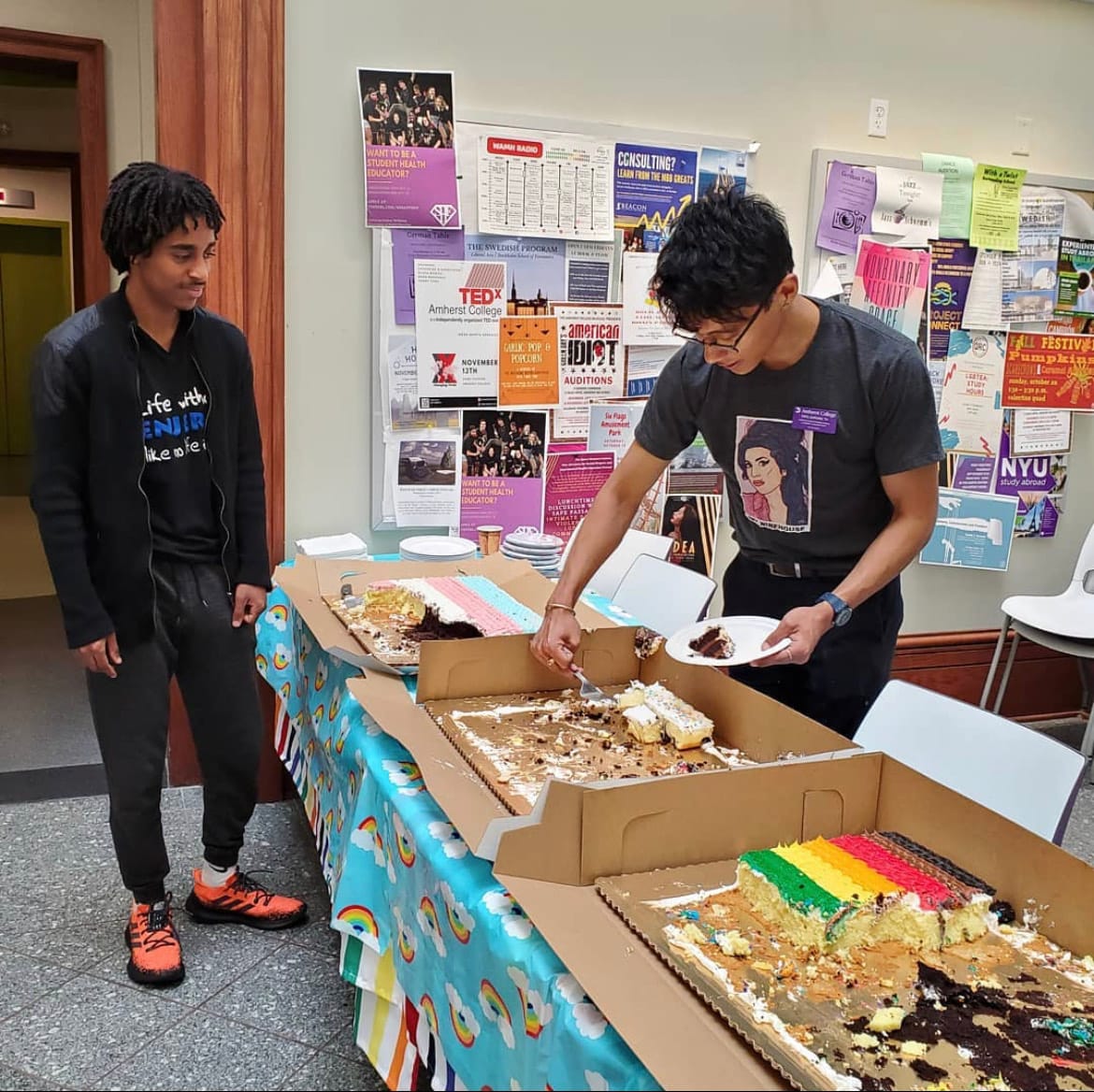
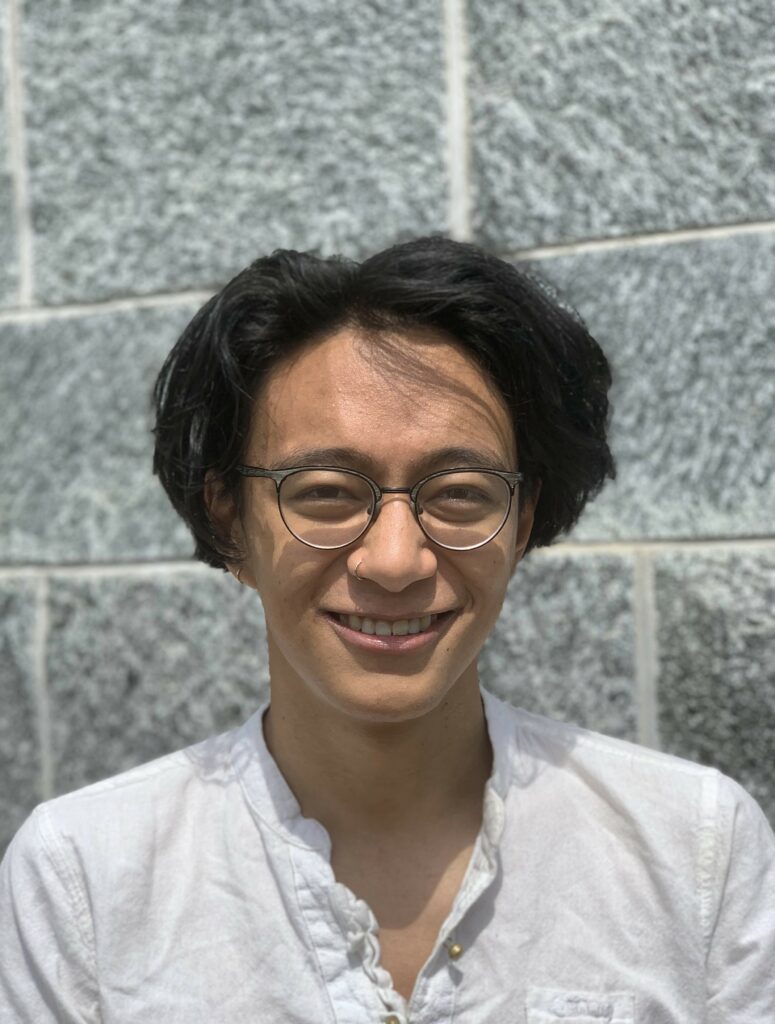
Sirig Gurung’s ’21 unassuming and humble disposition belies the large impact he has on those around him.
Originally from Kathmandu, Nepal, Gurung is a beloved member of the international student community at Amherst, which he has actively contributed to through his work with the Center for International Student Engagement (CISE). A double major in economics and math, he has gotten deeply involved in both departments, serving as a Math Fellow and writing a senior thesis in economics. In the future, Gurung plans to pursue research in development economics, specializing in international migration from Nepal.
When asked to describe Gurung, those close to him painted a person who is poised and wise, kind and welcoming, thoughtful and supportive — someone who is great at listening and giving advice and has an incredible sense of humor to top it all off. But the common feature that drives all of Gurung’s pursuits and underlies his most notable qualities is the genuine curiosity and compassion he brings to connecting with and learning about people.
Creating a Diverse Community
Having come to Amherst without a clear idea of what he wanted to do, Gurung recalled feeling overwhelmed by the sheer amount of possibilities that were available to him: “I saw the open curriculum and all the courses here, and I was like, ‘I’m gonna do everything,’” he said about his first year at the college.
Gurung recounted approaching his social life in the same way at first: “I thought I could make friends with everyone, you know?” He spoke, however, about becoming disillusioned by a social scene that was not always accepting of the diversity of its members. Part of sustaining a diverse community is having the understanding that not everyone “interact[s] with people the same way people here do,” he said. “I was disillusioned by the fact that that understanding doesn’t necessarily exist within the wider community.”
Gurung credited this disillusionment with pushing him toward finding community among his fellow international students. He began seeking out active roles in building up this community his sophomore year, serving as an International Student Leader (ISL) before starting to work as a program coordinator for the CISE that fall. The inspiration for taking on this role came in part from his experience attending an international school in India, said Gurung, where “there [were] a lot of people who were feeling out of place … but the fact that everyone was out of place made sure that no one was out of place.”
“I wanted to replicate that environment at Amherst, at least a microcosm of it, by working at the CISE and making sure that international students feel supported through their time at Amherst,” he explained.
Gurung’s approachable and reassuring nature served him well in this work, said Hanna Bliss, the former director of the CISE who supervised him in his two years there. “Welcom[ing] folks into the center [and giving them] what they need in order to participate, in order to be present, in order to be comfortable … are things that he always did really seamlessly,” she said. “I have seen Sirig be a really calming presence for other students in moments where they’re struggling.”
Bliss added that Gurung was always ready to step up in support of his colleagues as well. “If ever anybody needed a helping hand, he was the person to say, ‘Yeah, I’ll be there for you. I can do that thing to make it easier for you,’” she said.
At the CISE, Gurung devised and implemented programs that served to not just foster community among international students at Amherst but also expand the idea of community itself. He collaborated extensively with other resource centers at the college to bring more intersectionality to conversations that often take place in a U.S.-centric context on campus. Working in conjunction with the Center for Diversity & Student Leadership (CDSL), for instance, Gurung coordinated a program that examined from an international perspective the meaning of class in the student experience.
The initiative Gurung took in breaking new ground with such programs was emblematic of the ways in which he had grown in his time at the CISE, said Bliss. It was really exciting to “see that shift from being more ready to help out others to … moving into the driver’s seat, coming up with new ideas and pulling them off in really beautiful ways and creating new relationships that have never existed before,” she said.
In Gurung’s own words, “The goal [of his work] wasn’t to create a cliquey environment of international students. It was to make sure that visibility was there for international students — that when people thought of community at Amherst College, they didn’t block out the fact that there’s a minority of international students living here.”
“One of the reasons why I collaborated with different resource centers was because there’s a shared experience between minority groups here,” he continued. “It’s very important to put our strengths together to make sure that there’s more diversity in the idea of community.”
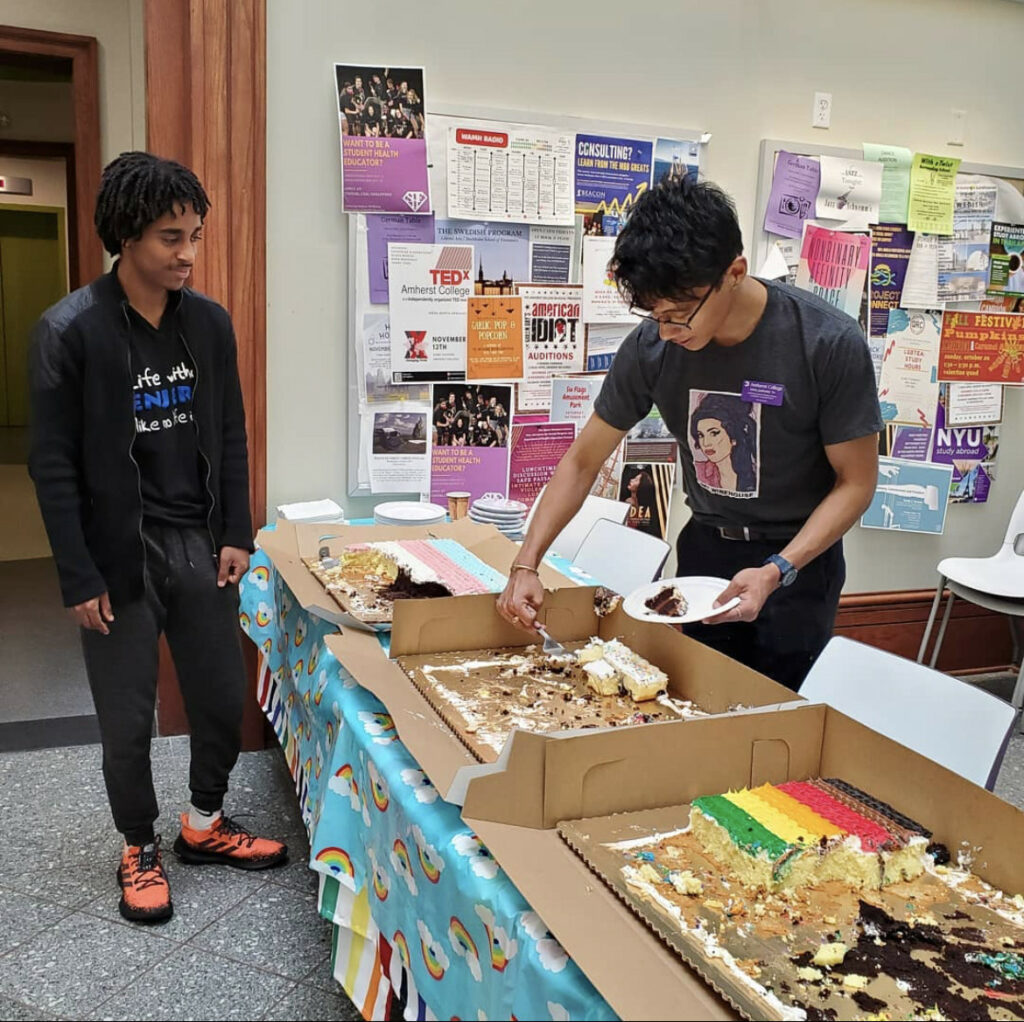
Realizing His Passion in the Classroom
Gurung has also been actively involved in contributing to academic communities in his time at Amherst. He is a Math Fellow for the Mathematics & Statistics Department and has served as a Teaching Assistant (TA) for a multitude of math courses at Amherst. At the end of his junior year, he was honored with the Walker Teaching Award, which recognizes students for “accomplishment and promise in teaching and tutoring mathematics or statistics.”
It was evident from the way Gurung spoke about his experience as a TA that this accomplishment comes from his compassion for the diversity of student experiences and genuine interest in learning from and about others. “Especially in the entry-level [math] classes, there are people of very varying degrees of pre-existing knowledge of math,” he said. “When you’re trying to communicate ideas to a group of people, you need to be cognizant of the fact that people learn differently.”
Gurung’s role as a TA has been a great way for him to meet new people and watch them grow, he continued. “I’m [a TA for] ‘[Introduction to] Analysis’ this semester, and a lot of people who I TA’d for Math 121 [‘Intermediate Calculus’] are in that class. It’s nice to see ‘character arcs’ throughout.”
But despite Gurung’s active participation in the math community at Amherst and his continued interest in math throughout his undergraduate career, he realized early on that pure math wasn’t what he wanted to spend the rest of his life doing. He explained that he had always wanted to do something related to math, but he wanted his work to have a more direct connection to the reality he observed around him.
He ended up finding this connection in economics, which he decided to major in after taking “Advanced Microeconomics” in the fall of his sophomore year. The course showed him that “econ[omics] [has] actually quite serious math going on behind the scenes,” Gurung said, convincing him that economics was the intersection between math and real-world applications that he was looking for.
In focusing his academic trajectory on economics, Gurung has challenged himself with the highest level courses offered in the department, engaging his coursework with care, collaborating with classmates and winning accolades for his academic achievement. Peers and professors alike were quick to note that this earnestness is driven by Gurung’s deep curiosity and an underlying passion for improving people’s lives, particularly in the country he calls home.
“He’s very, very interested in getting to the nitty gritty [of economics],” said Guillermo Rodriguez ’22, a close friend of Gurung’s. “He’s very much focused on improving living standards and people’s situations from a humanitarian perspective.”
“[Gurung]’s deeply motivated, and he’s really passionate about important questions, particularly for people in developing countries, and particularly for people in Nepal,” echoed Professor of Economics Caroline Theoharides, one of Gurung’s thesis advisors. “He’s made sure that he has all the mathematical and economic tools to be able to [explore those questions] really successfully.”
Gurung used his senior thesis as an opportunity to investigate one such question, drawing from his personal experience living in India to study the spillover effects that a demonetization policy in India had on Nepal.
His work exemplified his unique ability to “com[e] up with [questions] that are at the cutting edge of economics, but that he comes up with totally tractable and possible ways to [study],” said Theoharides, who added that the topic “speaks well to how he’s been able to use his own life experiences to inform really important questions that economists haven’t thought about.”
For Gurung, centering his research on “issues that plague Nepal” is a key way in which he has been able to connect back to his home community: “I’ve been away from home for six years, essentially, and making sure that my work grounds me to where I’m from is something that I find is pretty important to me.”
Looking Forward to What’s Next
Gurung, who hasn’t left campus since the pandemic hit the U.S., said it has made him more excited for the next chapter of his life. “The pandemic has really changed my outlook on what it means to be graduating and how I feel about that,” he said. “It’s been stressful. But it makes the end more sweet.”
He’s headed off to Dartmouth College, where he will be conducting research on globalization, international trade and political economy in the university’s Globalization Cluster initiative. Gurung plans to enroll in a Ph.D. program in economics after he finishes with the research lab.
Reflecting on his time at Amherst, Gurung said it’s been most rewarding in allowing him to hone in on an idea of what he wants to do. He expressed gratitude for the support professors have given him in his intellectual development and the strong relationships he’s fostered in collaborating with fellow students.
Of course, Gurung has more than reciprocated in the amount of warmth and support he has given to those around him and larger communities at Amherst. They can’t wait to see him get out into the real world, where he will continue to engage his passion and connect with people in new and beautiful ways.


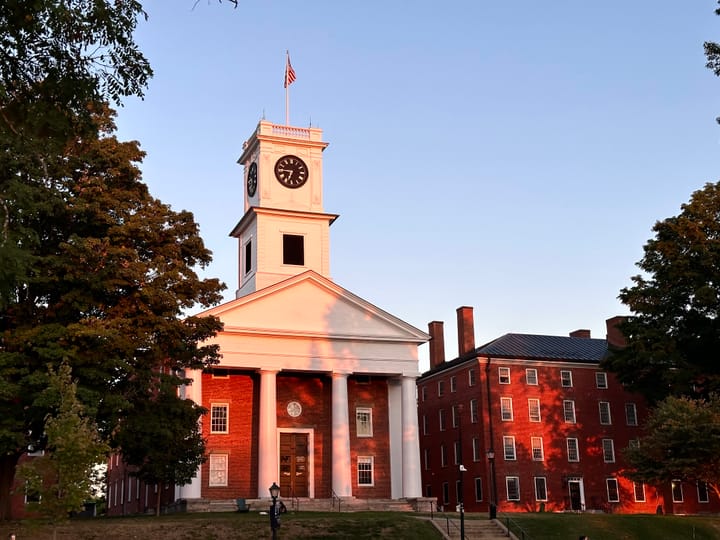

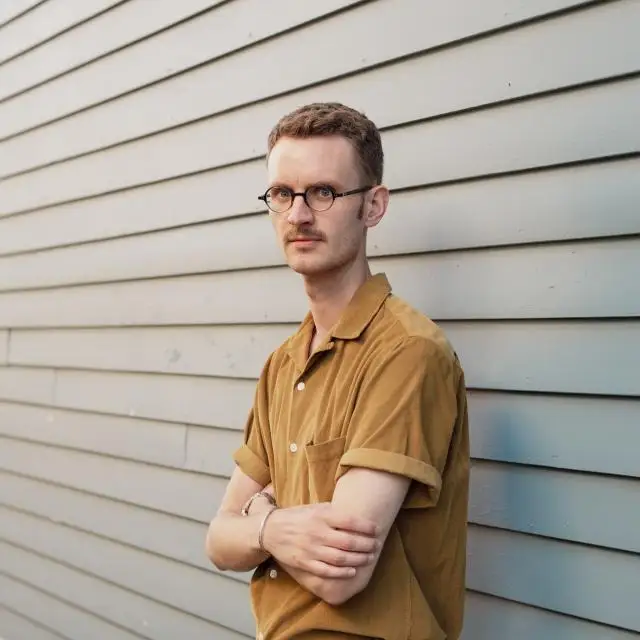
Comments ()